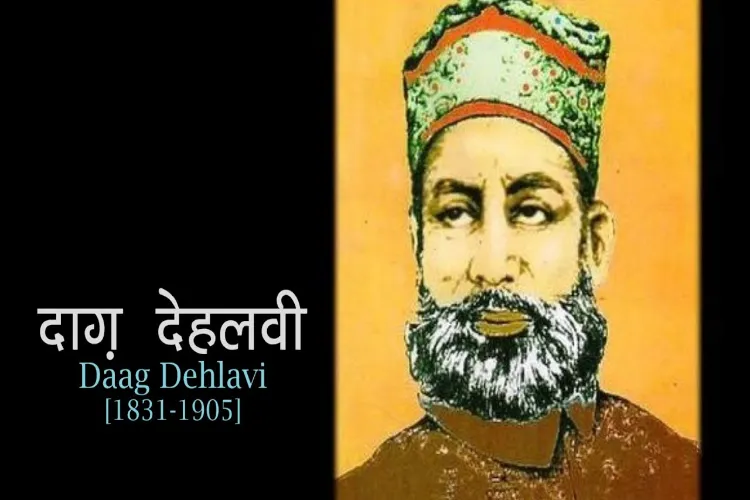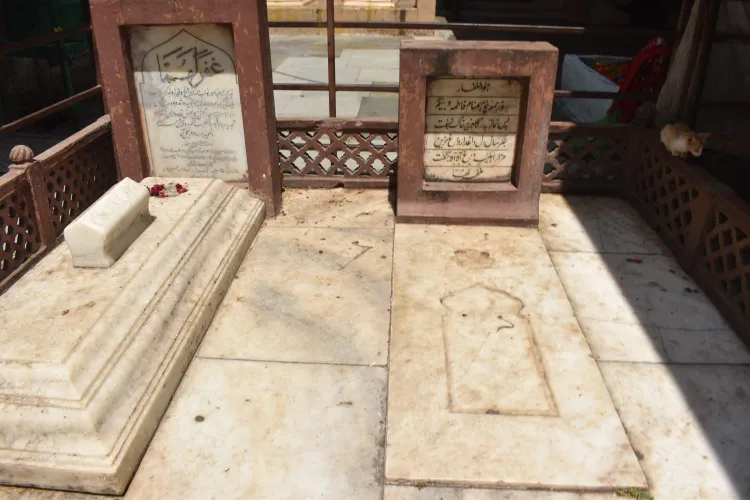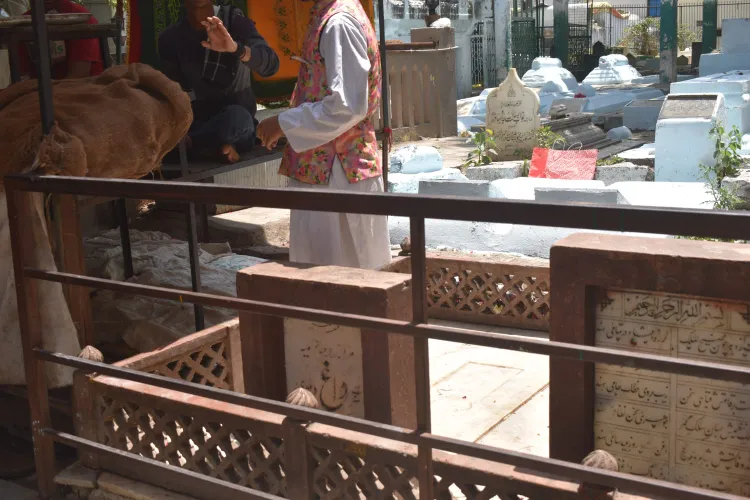
Mohd Akram/Hyderabad
Urdu hain jis ka naam, hum hi jaante hain Dagh,
Hindustan mein dhoom humari zabaan ki hain
The above couplet written by the famous Urdu poet Dagh Dehlavi translates as "O Dagh, the language whose name is Urdu, is known by me, this is the one language which is celebrated and loved in India."
Nawab Mirza Khan Dagh Dehlavi was born on March 25, 1831 to Nawab Mirza Shamsuddin Ahmed Khan and Wazir Khanum. Daagh’s father was hanged by the British for his believed role in the assassination of a prominent British civil servant and at this stage, his mother married the Mughal prince Mirza Muhammad Fakhroo, heir to Bahadur Shah Zafar. The regal relationship gave Dagh access to what was known as the epicenter of Urdu, the Red Fort. After Fakhroo's death, Dagh had to leave the Red Fort, and after the fall of Delhi in 1857, he moved to Rampur. Later, under the changed circumstances of his life he shifted to different cities like Lucknow, Patna, Calcutta, and finally to Hyderabad, where he breathed his last on March 17, 1905. His nom-de-plume "Dagh" (stain, grief) is a resonance of his otherwise sad childhood. He used his wit, humour, sarcasm as his shield in his poetry.
The neglected graveyard of Nawab Dagh
A forgotten grave in Hyderabad is the resting place of Dagh Dehlvi. A fading and damaged gravestone can be seen inside the bustling Yousufain Dargah. While the Thursday nights are busy at this mausoleum echoing with the music of qawwals (Sufi devotional singers) as crowds jostle for space on entering the domed edifice right after the evening prayers hardly anyone in the crowds there is aware of the importance of the man who lay buried in the grave.
Asked about the deteriorating condition of his grave, the Dargah administration and the Telangana Waqf Board's said they offer flowers annually at the grave.

The unkempt graves
Adnan Sheikh, who sells flowers at his shop close to the grave, says that poetry lovers from all over the world visit his grave to pay their tributes, "Americans, Saudi Arabians, Pakistanis come here to do their research..", he said. But he falls short of words when asked about the maintenance of the grave. Another shopkeeper and caretaker Mohammad Zahoor says, "This is a very old tomb, people from Ahmedabad, Delhi, Mumbai and all over the world come here once a year to offer Chadar but hardly any maintenance is done by the authorities...". "When the Minister of State Mahmood Ali Saheb comes to the dargah (Yousufain Dargah), flowers are also offered to Dagh's grave...”, he adds.
Dagh's charisma lies in the usage of simple words in his otherwise intricated poetry. Though steeped in the rigid Persian-influenced literary traditions of North India that lent Urdu its elite character, his poetry rarely prompts readers to consult a dictionary. The words are so lucid that novice Urdu enthusiasts can understand them completely. Musharraf Iqbal Tausifi, retired director of the Archaeological Survey of India, says, "Dagh was a great poet. He used simple language and wordplay as his resort, there is so much that can be learned from him..". In its totality, Dagh’s poetry is idiomatic and appealing, laden with emotions and good humour. He did not take the idea of love to philosophical heights but engaged with the experience of love at a humane level.
Mohammad Azam Siddiqui, who lives in the dargah, has been a resident here for about 40 years says, "It is as if we have forgotten our ancestors, Chadar is offered to Dagh Dehlavi's grave once a year but not much is known about his family, relatives or friends, Dagh was a great poet, I think it is our bad luck that the upcoming generation would not be familiar with his name.."

A day to day view at the Mausoleum
Dagh's tutelage didn’t just grace Deccani poets; but also Dabistan-e-Punjab stalwarts. One of his promising apprentices was a Government College Lahore student named Muhammad Iqbal, who was later addressed as Shayar-e-Mashriq (Poet of the East) and Allama.
Iqbal commemorated his mentor with these lines:
“ Janaab-e-Daagh ki Iqbal yeh saari karamat hai,
"Tere jaise to kar dala, sukhandaan bhi sukhanwar bhi .”
The couplet translates as "Oh Iqbal, you owe your life to the mentorship of Dagh, it is his charisma that a worthless poet like you has become a master versifier"
As the Yousufain mausoleum reverberates with music, the graves call out for care and look after. Though a khutba (nameplate) has definitely been put on the grave of Dagh Dehlvi but that too is loosing its marking due to wear and tear of time.
His famous works include "Gulzare Daag", "Mahtabe Daag", "Aftabe Daag", "Yadgare Daag", "Yadgare Daag 2". Apart from his four divans, representing the last hallmarks of classical poetry, he has left behind a bunch of letters and a long narrative poem.
koi nam-o-nishan puchhe to ai qasid bata dena
taḳhallus 'dagh' hai vo ashiqon ke dil men rahte hain
The couplet translates as "If someone asks my existence or about my roots, tell them my pen name "dagh" and that I live in the heart of lovers.."
